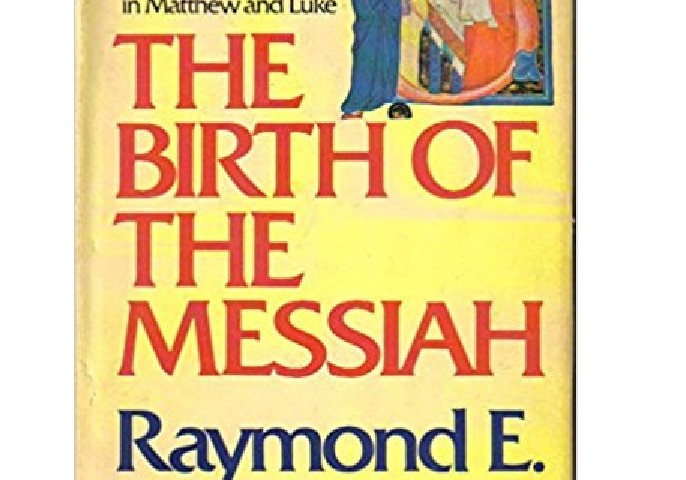
Jesus as God. The New Testament Use of Theos in Reference to Jesus
June 2, 2017
Was Calvin Anti-Trinitarian?
July 3, 2017The Birth of the Messiah

By Raymond E. Brown, pp. 291, 314-15.
Mat 1.1. birth record. Literally “book of the genesis”…Genesis gives us the leitmotif of the passage: the related verbal form egennesen (from gennan, “to beget, be the father of”) is used throughout the list…The very reuse of genesis in 1.18 shows that Matthew is thinking here of the birth of Jesus…The Fourth Gospel uses its “genesis” Prologue (“In the beginning”) to speak of the incarnation of God’s timeless Word; Matthew uses his introductory book of genesis (biblos genesos, “birth record”) to stress Jesus’ insertion into a history and a people…The same word [is used in Mat 1.18]. A respectable number of less important textual witnesses read gennesis, which also means “birth” but does not have the same wide range as genesis [“birth, creation, genealogy”]…the manner of the begetting is implicitly creative rather than sexual.
The lack of the definitive article [through the Holy Spirit, Mat 1.16] (also missing in the parallel description of pregnancy in Luke 1.35) tempts one to speak of “a holy spirit”…If most commentators try to catch this by supplying the definite article before “Holy Spirit”, this should not lead the Christian reader to assume that either Matthew or Luke has developed a theology of the Spirit as a person, much less the third Person of the Trinity. Perhaps the broader category of divine agent best covers the evaluation of the Spirit throughout most of NT Christian thought…As for capitalization I follow recent Bible custom, without implying that a passage conveys either personality or a Trinitarian concept of divinity. Early English Protestant Bibles capitalized neither “holy” nor “spirit”; the Rheism Catholic edition capitalized both; the [KJV] capitalized only “Spirit” until the 18th century.
Of the 9 times dio kai [Therefore, Luke 1.35] occurs in the NT, 3 are in Luke/Acts. It involves a certain causality…this has embarrassed many orthodox theologians, since in pre-existence Christology a conception by the Holy Spirit in Mary’s womb does not bring about the existence of God’s Son. Luke is seemingly unaware of such a Christology; conception is causally related to divine sonship for him…And so I cannot follow those theologians who try to avoid the causal connotation in the “Therefore” which begins this line by arguing that for Luke the conception of the child does not bring the Son of God into being, but only enables us to call him “Son of God” who already was Son of God.
In Luke 1.35 the begetting is not quasi-sexual as if God takes the place of a male principle in mating with Mary. There is more of a connotation to creativity. Mary is not barren, and in her case the child does not come into existence because God cooperates with the husband’s generative action and removes the sterility. Rather, Mary is a virgin who has not known man, and therefore the child is totally God’s work—a new creation…And this double expression of God’s activity makes it clear that when the child is called “holy” and “Son of God”, these designations are true to what he is and to his origins.
